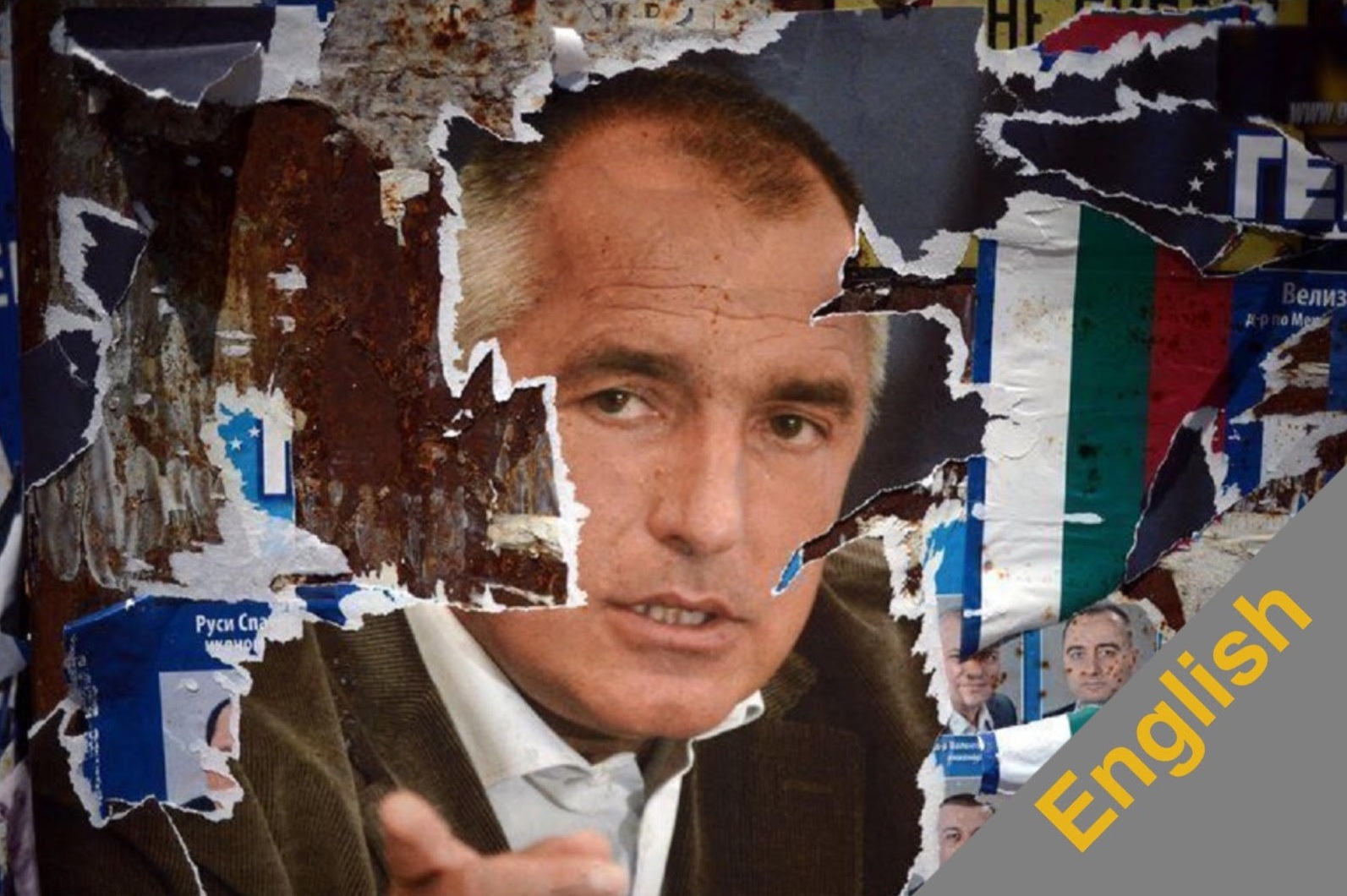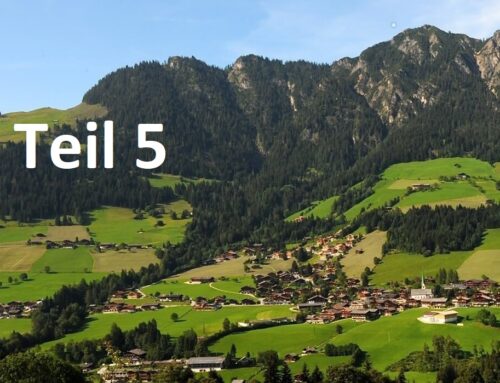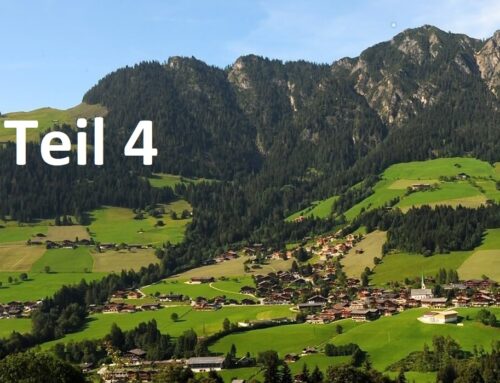An Interview with Ana Pirinska, Electoral Candidate from Bulgaria
A central theme in political history is the aspect of having your voice heard. At foraus (a Swiss think tank for foreign policy) we have learned to strive for a more constructive and open foreign policy by uniting young professionals and students and forming a think tank. Another, perhaps more traditional and obvious way to get politically involved is by running for office.
Ana Pirinska (31) studied Political Science, International Relations and Eurasian Studies at Sofia University in Bulgaria and MGIMO in Russia. Having been a politics buff since her childhood, she has been active in the Bulgarian Socialist Party for many years while also working as a journalist and in international project management.
In March this year, she decided to finally take the next step and run as a candidate for a seat in the National Parliament. Though unfortunately not successful, she managed to reach a considerable number of votes, which has motivated her even more to stay active in the political life.
Having met Ana at university, I had the chance to ask her a few questions about being a young political candidate, the political situation in Bulgaria as well as the European future of the country.
Parliamentary elections were held in Bulgaria this year. This happened early on March 26th because Prime Minister Boyko Borissov resigned. What lead to this early election?
The party of former Prime Minister Borissov named GERB (Citizens for European Development of Bulgaria) resigned due to their loss at the Presidential elections in early November last year. The circumstances around this resignation are still unclear, the main question being why he decided to link the results from the Presidential election to the future of his government. It was pretty clear back then and even more so now that preliminary parliamentary elections would not solve the Bulgarian political puzzle. The March 26th elections, however, produced no party with enough votes to form a stable government. The Constitution obliges the President to offer the biggest oppositional party the opportunity to form a government. If this fails, the second largest party is given the mission, if that party in turn also isn’t able to take up the task, a third party is asked. Since GERB gained the most votes, it is up to them to try to form a government.
The most likely outcome now is a new government coalition between GERB and the United Patriots (A union of 3 far-right nationalist parties). GERB’s partners in Europe and in the European People’s Party are not really happy with this outcome. However, considering that Bulgaria will be President of the Council of the EU for the first half of 2018, this seems like the only option for a government that should last until at least mid-2018.
All in all, the majority of Bulgarians feel as though this election just took us back to where we started.
In the mean team while a negotiation for a new government continue, the President appointed an interim government for a period of two months. How did this pan out?
Most of the actions of the interim government were seen as contradictory. One of the great disappointments was that it did not deliver an in-depth critical analysis of the GERB government’s performance and of the fundamental problems confronting the country today. Besides it engaged in sweeping dismissals and appointments in key administrative positions, which also provoked quite some criticism.
Tsetka Tsacheva is the first woman ever to chair the Bulgarian National Assembly since its establishment in 1878. When we consider the international women’s movement that has been gaining momentum, do you think that this a kind of feminist victory?
It is important to point out that women’s role in Bulgarian society and participation in public life has always been quite active.
But yes, it is worth mentioning that Mrs Tsacheva twice was elected to the office of Speaker of the Parliament. However, she was unsuccessful as GERB’s candidate for president of the Republic in the last elections. Perhaps as a result Borissov was so disappointed with her loss, that he decided to “punish” her and place her at an unelectable place in the party’s list for MPs in March 2016 elections.
In general, however, gender equality issues do not figure very prominently in public debate in Bulgaria. In part this is due to a tradition of more or less equal treatment, but also due to a guarantee of insufficient attention to real and growing problems.
You ran for the position of Member of Parliament during this election. How was your experience? Was it more challenging running as a woman?
It was a new experience and quite challenging. I don’t think my experience would have been much different if I were a man. All my colleagues and comrades from the Socialist Party felt the great expectations that the voters invested in us and the responsibility that we all shared. Now, an MP or not, all of us must work even harder to convince the voters that our mission is to achieve a fairer and socially-responsible state that is committed to care for all strata of society, and not only for the privileged few as has been the case for the last 25 years.
You ran for the Bulgarian Socialist Party. It is easy to associate this political affiliation with Eastern Europe’s “dark past”. How is this seen in Bulgaria?
The Bulgarian Socialist Party (BSP) is 130 years old with strong Social Democratic roots and one of the very few in Eastern Europe that managed to remain united following the Transformation of 1989. There have been numerous attempts throughout the years from different actors to not only undermine us, but also to predict our collapse. Despite all of this, the party has managed to overcome these difficult times, even when we had only 38 MPs in the Parliament.
Every Bulgarian party have made huge mistakes, and BSP is no exception to this fact. However, I am proud to say that we are a most democratic party in Bulgaria, however ironic this may sound.
For example, GERB cannot survive a day without Borissov’s charisma and populist behaviour. BSP on the other hand has a very dynamic and rich internal political zest; We argue, debate and disagree with each other all the time, but this is the best way to come up with shared working positions. Even though we did not win the last election, BSP managed to raise our votes twofold, meaning that over 950,000 Bulgarians supported our platform for real change. This is a great responsibility, which we are determined to take on as the biggest opposition party in the Parliament.
Which political goals and policies does your party strive for?
BSP has had a very clear and simple message during the last election: “Demand Change!” Along with traditional socialist party commitments such as affordable healthcare and education, our goal is to set up a BGN 500 million (approx. CHF 273 million) state fund to boost industries and incomes in the country. Further, we want to increase pensions by an average of 20-30 %, steadily introduce a proportional tax system, which would replace the current 10% flat tax. All this would be funded by an accelerated growth of the economy. Most important is our commitment to resolutely fight the so-called the parallel state of organized crime and corruption that has been depriving the taxpayers of approx. BGN 10 billion (CHF 5.5 billion) every year. In contrast, the BSP strives for a fair and just state that guarantees the Constitutional freedoms and rights of all Bulgarian citizens and that insures our full-fledged participation in the EU.
It seems that the majority of parties in Bulgaria are less than 10 years old, what do you think is the reason for this?
Currently, there are more than 350 parties registered in Bulgaria. For a country with a population of around 7 million people, this is absurd!
Instead of changing the laws so that only legitimate organisations can participate in political life, we witness the ongoing proliferation of more and more party formations. There just seems to be a lack of political will to properly deal with this matter. Obviously one should not deprive citizens of actively engaging in political life, everyone should be able to participate, but only after party formations have covered some basic criteria such as number of members, financial transparency, etc.
One of the main reason for the creation of so many parties is the desire to receive the state subsidy available to parties providing they managed to collect at least 1% of the popular vote. This is unfortunate, but the reality.
What would you say are the biggest challenges regarding political life in Bulgaria?
Not unlike the case in many other countries, roughly half of the voters do not engage in elections since there is broad feeling that voting doesn’t lead to real change. There are the problems of insufficient media coverage of the deep-rooted problems of society. There also is serious concern about manipulation of votes and the level of fairness of elections.
These challenges are in contrast to the basic nature of Bulgarian people as a proud and hospitable nation, located in the centre of one of the most strategic geopolitical areas in the world. Instead of building on these long-term advantages, we have not succeeded in developing a solid stance towards the major international actors influencing the region such as Turkey, the US, Russia and Western European powers.
Bulgaria is one of the youngest members of the EU with a 10 years’ experience. How do citizens view the EU, and has Brexit changed this perception?
The majority of Bulgarians are pro-European. Even though in private conversations they might express some serious disappointments with Brussels and its policies, when it comes to decisions and voting, the majority would still prefer and choose pro-European formations. However, this doesn’t mean that the voiced criticism is superficial. We have greatly benefitted from the European Cohesion Policy, but it is also true that Brussels bureaucracy and unilateral decisions have made the European project increasingly difficult to be defended.
The issue that bothers me personally is the EU’s inability to provide a strong perspective for shared sustainable development. Another matter that is unproductive is the Cooperation and Verification Mechanism for Bulgaria and Romania. Monitoring judicial system reforms and the fight against corruption, this mechanism has over time turned into an “internal political weapon” used by the majority of the parties to point fingers at their predecessors. Instead, Brussels could change this mechanism and turn it into a functioning system for control and transparency. Otherwise, we both lose – Bulgaria stays corrupted and unreformed, and the EU remains the distant stepfather who has no interest in actual improvement.
One of the most challenging aspects of being an Eastern Europe country is that you’re constantly forced into the role of a political balancing act between the EU and Russia. How does Bulgaria handle this challenge?
Poorly. We are in a unique situation as members of the biggest and most successful political project in world history – the EU. On the other hand, we have deep and strong relations with Russia, one of the most influential international players. The constant pro-, and anti- Russia talk is harmful and counterproductive. We should really have pragmatic and fair relations with both Brussels and Moscow. Instead, every new government seems to take sudden turns in our foreign policy and the results are more than clear: one-sided trade, no major infrastructure and/or energy projects have been developed in the last years such as South Stream. This has to change and I think the majority of Bulgarian people realize this.
You are a young candidate. How did you get your motivation to be active in politics?
Politics runs in my family. Both my maternal and paternal grandfathers were very active members of the Communist party. My father, Georgi Pirinski, is currently a Member of the European Parliament (Socialists & Democrats Group), following his roles as Foreign Minister (1995-1996) and Speaker of the Bulgarian Parliament (2005-2009). I guess it was only natural for me to choose this career path. My first memories are from political rallies and campaigns, and I think I have always known that I would continue both my family’s mission to achieve a fair and prosperous society. Above all, my biggest motivation is my desire for all people to live decent and better lives. Bulgarians deserve more. And nowadays it feels like they have accepted their fate and do not believe things could be different. Their attitude has become “it is what it is and there is nothing we can do about it”. We want to change this kind of resignation and acceptance of injustice.
What advice do you have for young people who want to be politically active?
Be patient and persistent. Stay true to yourselves and never make compromises with your principles. The goal doesn’t justify the means!
Are there any books, movies or TV shows that you feel correctly depict the political life or rather, have helped you shape your thinking?
My favourite author is J.D. Salinger. His work is both inspiring and deeply psychological. I love the theatre; it’s a mystical place where I often go alone because it has a kind of therapeutic effect on me. As for TV shows, I strongly recommend “Homeland”, “The Americans”, and “Berlin Station”. They are depicting the reality in a very honest and even brutal manner. I follow these and others shows because I believe that they have the power to change people’s perceptions on politics and, above all, their ability to change realities.
Thank you for this interview.





Hinterlasse einen Kommentar